School of Modern Diplomacy
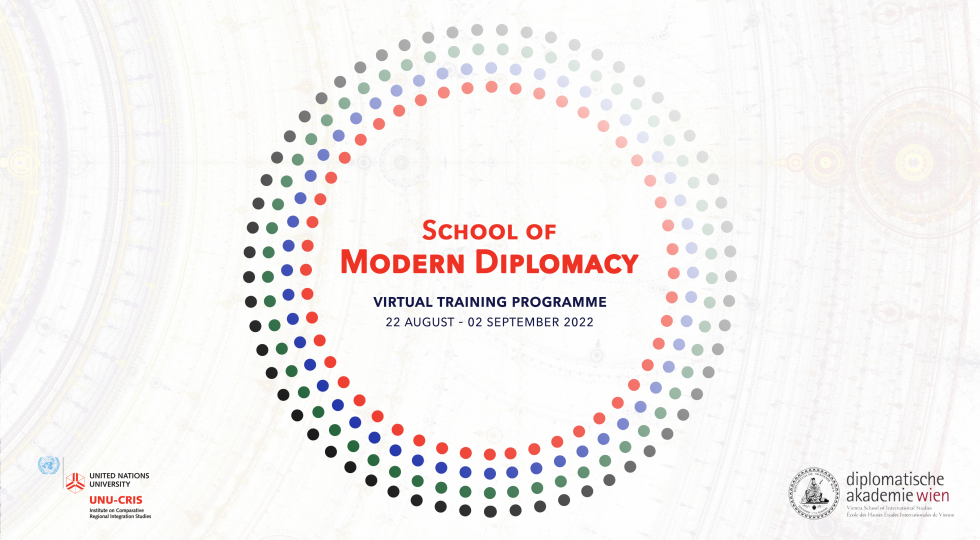
The art of diplomacy has evolved. In an age where 280 characters from a world leader on Twitter can give a green light to foreign military action or move markets, there is no denying that the classic notions of diplomacy – backroom handshakes between decades-long counterparts with a tinge of cigar in the air – no longer reflect reality.
What has taken its place is a modern, multi-level and multi-faceted approach that encompasses all the tools of the international and interconnected global sphere. Effective diplomacy now relies on the ability of a government to engage on numerous fronts and in numerous departments.
This programme, organised by UNU-CRIS and Vienna School of International Studies and in collaboration with the Department of Foreign Affairs of Flanders, Ghent University and the Brussels School of Governance (BSoG/VUB), aims to present the most comprehensive, in-depth analysis of and training in modern diplomacy, gaining insights from practitioners, academics and policymakers at the forefront of their fields and operating at the highest levels, on the different facets of modern diplomacy and how they are being employed the world over to shape ideas, discussion and the world we live in.
How will the new methods of modern diplomacy change the art of it? Educate and prepare yourself for this new age of diplomacy at the School of Modern Diplomacy.
"I liked the general organisation by the UNU-CRIS team, and most importantly the high calibre of experts who lectured during the school. Even the selection process of the participants was well thought-out, consisting of a vast array of professionals from all walks of life, and a true representation of the world."
- a graduate of the School of Modern Diplomacy
Schedule
This programme will be run virtually from 22 August 2022 to 02 September 2022 between 10:00 - 16:30 CEST (UTC+2) with breaks included.
It includes four sessions of 70 minutes, with morning sessions providing an academic foundation followed by more practical sessions in the afternoon.
There will be several virtual social events, as well as discussion sessions at the end of each day so the group can talk through the main topics and themes of the presentations.
Deadline for Applications and Selection Process
Applications are accepted on a rolling, first-come-first-served basis until 23:59 on 14 August. When the capped number of participant positions is filled, no more applications will be accepted, however strong applications after the cut-off has been reached will be placed on a waiting list and contacted should positions open. Applications will begin being assessed from 15 July 2022.
The target audience for the School of Modern Diplomacy is primarily those in the diplomatic service or with aspirations to do so, policymakers, and academics.
Applicants must hold at least a master's degree. There is no time limit as to when the degree was obtained.
The programme and assessment will be conducted in English, and as such participants are expected to have an excellent command of the English language.
Applications (in English) must include:
- A curriculum vitae
- A motivation letter (max 2 pages)
Tuition
Fee
The tuition fee for the School of Modern Diplomacy is €1000.
A non-refundable deposit of €250 is required within two weeks of acceptance.
Full payment must be made within four weeks of receiving the acceptance confirmation email.
Both the deposit and the remainder of the fee can be paid together.
Alumni of previous UNU-CRIS Summer Programmes (2019/2020/2021), students from Ghent University, the Vrije Universiteit Brussel, any United Nations University education programme, and the College of Europe are entitled to a €150 discount on the full tuition fee.
Discounts are offered for groups - for more information please contact adunn@cris.unu.edu
Scholarships
There are a strictly limited number of excellence and equal opportunity scholarships available. To be eligible, please clearly state your wish to be considered in a separate paragraph in your letter of motivation, outlining why you believe you should be awarded a scholarship.
The organisers wish to reiterate that these are extremely competitive and very limited in number, and therefore should not be counted upon when applying.
Evaluation & Certification
Participants will be asked to undertake a written evaluation, the format of which will be announced in the week prior to the commencement of the programme.
These written assessments will be evaluated by academic personnel from both UNU-CRIS and the DA Vienna, with those adjudged to have satisfied the criteria will be awarded a certificate.
Cancellation Policy
More than 30 days before commencement date: no cancellation charges - deposit lost
Between 30 and 15 days before commencement date: 50% cancellation charges
Between 15 and 5 days before commencement date: 75% cancellation charges
Less than 5 days before commencement date: full fee lost*
All questions regarding the programme should be directed to the programme coordinator Andrew Dunn (adunn@cris.unu.edu) with Pascale Vantorre (pvantorre@cris.unu.edu) in cc.
*negotiable at the discretion of the admissions board
Modules and Speakers
*more to be announced shortly

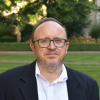
Philippe De Lombaerde
Director ad interim, UNU-CRIS

Susanne Keppler-Schlesinger
Deputy Director, Diplomatische Akademie Wien – Vienna School of International Studies
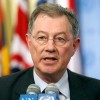
Robert Serry
First Ambassador of the Netherlands to Ukraine
Former United Nations Special Coordinator for the Middle East Peace Process

Johan Verbeke
Former Belgian Permanent Representative to the United Nations
Former Belgian Ambassador to the United Kingdom and the United States of America

Alexander Hug
Former Principal Deputy Chief Monitor of the Organization for Security and Cooperation in Europe (OSCE)’s Special Monitoring Mission to Ukraine (2014 – 2018)
Head of Mission of the Iraq Program of the International Commission on Missing Persons

Andrew Cooper
Associate Research Fellow, UNU-CRIS
Professor, University of Waterloo


Andreas Sami Prauhart
Founding Partner, Y-Motions International
Lecturer, Diplomatische Akademie Wien
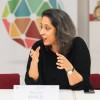
Mona Ali Khalil
Founder and Director, MAK LAW International
Former Senior Legal Officer, UN Office of the Legal Counsel (UNOLC) in New York

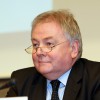
Richard Higgott
Research Professor, Institute for European Studies / VUB
Emeritus Professor, University of Warwick
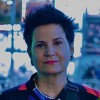
Nancy Snow
Pax Mundi Professor of Public Diplomacy, Kyoto University of Foreign Studies

Lee Yoong Yoong
Director of Community Affairs Directorate, ASEAN Secretariat

Gloria Benedikt
Visiting Fellow, Institute for Human Sciences (IWM)


Glen Rayp
Professorial Fellow, UNU-CRIS
Professor, Ghent University

Samuel Standaert
Professorial Fellow, UNU-CRIS

Linda Yueh
Fellow in Economics, St Edmund Hall, University of Oxford
Chair of the LSE Economic Diplomacy Commission

Yu Jie
Senior Research Fellow on China, Chatham House
Associate Fellow, LSE IDEAS

Ulrike Ritzinger
Head of the Department for Business Services at the Austrian MFA
Former Consul General of Austria to the US (Los Angeles)

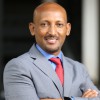
Mehari Taddele Maru
Part-time Professor, Migration Policy Centre, European University Institute
Lead Migration Expert and Chief Strategist, Intergovernmental Authority on Development (IGAD)
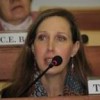
Teresa Albano
Economic Affairs Officer, OSCE
Office of the Co-ordinator for Economic and Environmental Activities - OCEEA

Janina Stürner-Siovitz
Research Fellow, Centre for Area Studies, Friedrich-Alexander-University Erlangen-Nürnberg


Luk Van Langenhove
Founding Director of UNU-CRIS
Academic Commissioner for International Institutes and Networking, Vrije Universiteit Brussel
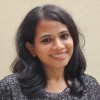
Jenice Jean Goveas
STI Postdoctoral Policy Fellow at the Department of Science and Technology’s Centre for Policy Research, Indian Institute of Science.

Michaela Told
Co-Founder and Co-Director, HumanImpact5 HI5
Visiting Lecturer Global Studies Institute, University of Geneva


Thijs Van de Graaf
Associate Professor, Ghent University
Co-coordinator, Ghent Institute for International and European Studies (GIES)
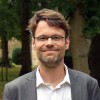
Simon Schunz
Professor, College of Europe
Associate Research Fellow, UNU-CRIS

Nidhi Nagabhatla
Senior Research Fellow, UNU-CRIS

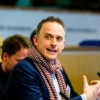
Jamal Shahin
Professorial Fellow, UNU-CRIS
Research Professor, Institute for European Studies / VUB
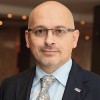
Jovan Kurbalija
Executive Director of DiploFoundation
Head of the Geneva Internet Platform
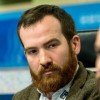
Tom Moylan
Adviser to Director-General for Communication
Former Speechwriter to the EU Commissioner for Trade

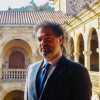
Noe Cornago
Professor, University of the Basque Country
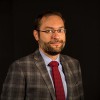
Tomasz Kamiński
Professor, University of Łódź

Daniel Pejic
Research Fellow, Melbourne Centre for Cities at the University of Melbourne

Nahuel Oddone
Head of Promotion and Exchange of Regional Social Policies Department. MERCOSUR

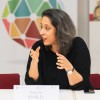
Mona Ali Khalil
Founder and Director, MAK LAW International
Former Senior Legal Officer, UN Office of the Legal Counsel (UNOLC) in New York

Andrew Bradley
Chief of Staff, OACPS Secretariat
Associate Research Fellow, UNU-CRIS
___________________________________________________________________

Andrew Dunn
School of Modern Diplomacy Coordinator
Policy and Communications Officer, UNU-CRIS
___________________________________________________________________
